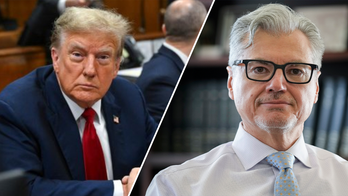Sen. Jim Bunning's decision not to seek re-election next year has paved the way for Ron Paul's son to make his first foray into national politics.
Rand Paul, a Kentucky ophthalmologist, has said he would seek his state's Republican nomination for senator only if Bunning didn't. On Monday, Bunning announced he would not seek a third term because of a lack of campaign funds.
But Paul has not fully committed to a Senate run.
"We're very close and probably there will be some announcement from us in a week to 10 days,"he told FOXNews.com.
Paul said he is talking to family and friends and gauging public support.
"We only want to do this if we can win,"he said.
So far, Paul has raised more than $160,000, compared to $602,000 for his potential Republican primary challenger, Kentucky Secretary of State Trey Grayson, who is now considered the establishment favorite.
Paul said he's not concerned about Grayson's fundraising advantage because Paul has raked in his money without any fundraisers.
More importantly, Paul has an advantage in name recognition. His father, a Texas congressman, drew tons of grassroots support for his insurgent "Ron Paul Revolution" presidential campaign last year.
Paul said he talks to father periodically -- most recently the other day. The elder Paul, an obstetrician/gynecologist, advised his son to be sure he wants to run, because "it's an enormous amount of work"and "it's hard to do with a medical career," Rand Paul said. He said his father mused that he wasn't sure he'd jump into politics if he could do it again.
Paul said the biggest advantage for him in a potential run is his outsider credentials.
"People have a distrust for people who do it for 20 years," he said. "I think running against someone who has done it for a career will resonate."
He said Republicans are hungry for his candor, the same kind he inherited from his father.
"I don't pull any punches," he said, noting that he tells people it was a mistake for Sen. John McCain to suspend his presidential campaign last year, rush back to Washington and then cast the same vote for the $700 billion Wall Street bailout as his rival, Barack Obama.




